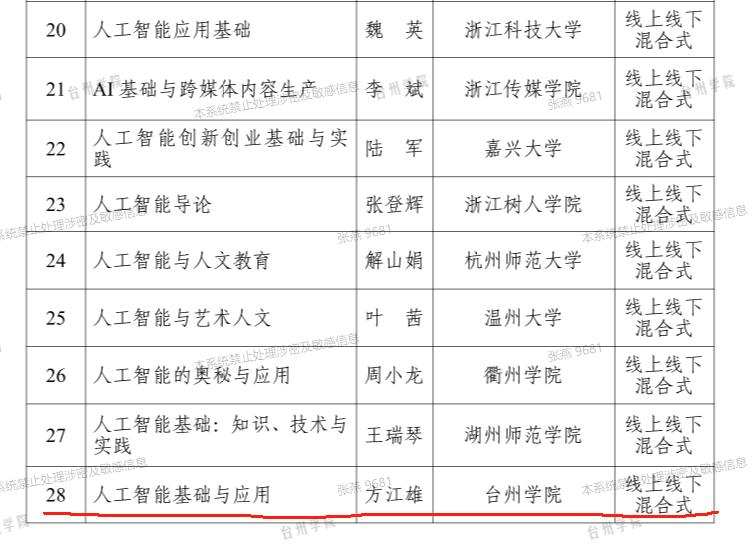The course “Artificial Intelligence Foundation and Application,” hosted by Taizhou University’s teacher Fang Jiangxiong, was approved as provincial first-class artificial intelligence general education courses according to the “Notice of the Zhejiang Provincial Department of Education Office on Publishing the List of 2025 Provincial First-Class Artificial Intelligence General Education Courses Approved for Establishment” (Zhe Jiao Ban Han [2025] No. 10) released. A total of 42 courses across the province were approved. This demonstrated the university’s achievements in the field of artificial intelligence education and teaching.

Image of the Notice document
In early February, following a directive from the Zhejiang Provincial Department of Education, Taizhou University’s Academic Affairs Office acted swiftly. It convened a seminar on February 14th, chaired by Vice President Li Jianjun, which resulted in the immediate formulation of the university’s AI general education curriculum plan.
In line with this plan, the office issued two key notices to formally establish teaching teams and integrate AI courses as public compulsory requirements for the class of 2025 and beyond.
To lead the transformation of talent cultivation in the AI era, the university upgraded its original information literacy courses. This initiative developed three distinct courses tailored to different majors:
“Artificial Intelligence Foundation and Application”
“Artificial Intelligence Foundation and Practice”
“Artificial Intelligence and Digital Literacy”
Subsequently, five of these courses were approved as university-level first-class courses, ensuring comprehensive AI literacy training for all undergraduates.
Looking ahead, the Academic Affairs Office will continue to implement the provincial action plan by deepening the application of AI in teaching and enhancing student AI literacy. Key future efforts include:
Anchoring AI literacy within the talent training scheme.
Promoting AI application skills among faculty.
Advancing the “AI+” professional cluster and curriculum system.
Leveraging AI technology to achieve a leapfrog advancement in the teaching paradigm, shifting the focus from knowledge impartation to ability cultivation.